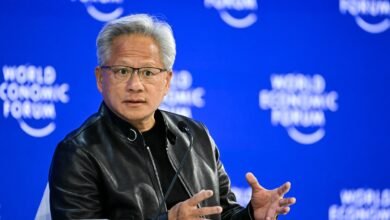Khosla Ventures Leads AI-Powered Roll-Ups for Mature Firms

▼ Summary
– Some VCs are shifting from funding startups to acquiring mature businesses like call centers and accounting firms, then optimizing them with AI for automation.
– Firms like General Catalyst and Thrive Capital are adopting this strategy, with General Catalyst backing companies such as Long Lake, which manages homeowners associations.
– Khosla Ventures is exploring this investment model but is proceeding cautiously to avoid risking its strong return track record.
– This approach could benefit AI startups by providing them instant access to large, established clients through VC-owned businesses.
– Khosla Ventures may partner with private equity firms for acquisitions if early investments prove successful, rather than building in-house expertise.
Venture capital firms are taking an unconventional turn by acquiring established businesses and supercharging them with artificial intelligence—a strategy that could reshape traditional investment models. Rather than solely backing startups, firms like Khosla Ventures, General Catalyst, and Thrive Capital are targeting mature companies in sectors like call centers and accounting, applying AI to automate operations and scale efficiency.
This approach mirrors private equity roll-ups but with a tech-driven twist. General Catalyst, for instance, has already invested in seven such ventures, including Long Lake, a company consolidating homeowners associations to streamline community management. In under two years, Long Lake has raised $670 million, demonstrating the potential of this hybrid model.
While still emerging, the strategy is gaining traction. Samir Kaul, general partner at Khosla Ventures, confirmed the firm is exploring similar opportunities. Known for bold bets on cutting-edge tech, Khosla sees promise in merging legacy businesses with AI—not just for returns but also to create ready-made clients for AI startups struggling with long enterprise sales cycles.
“Access to established customer bases could be a game-changer for AI innovators,” Kaul noted. However, Khosla isn’t rushing in. The firm plans to test the waters with select deals before committing further, prioritizing financial discipline. “We’re stewards of capital first,” Kaul emphasized, acknowledging the risks of venturing outside traditional VC territory.
If successful, Khosla may collaborate with private equity experts rather than building an in-house acquisition team. “We know our limits—this isn’t our core competency,” Kaul admitted. The cautious yet opportunistic stance reflects how VCs are adapting to AI’s disruptive potential, blending old-school business acumen with next-gen technology.
As more firms experiment with this model, the line between venture capital and private equity continues to blur—potentially unlocking new value for investors and industries alike.
(Source: TechCrunch)





